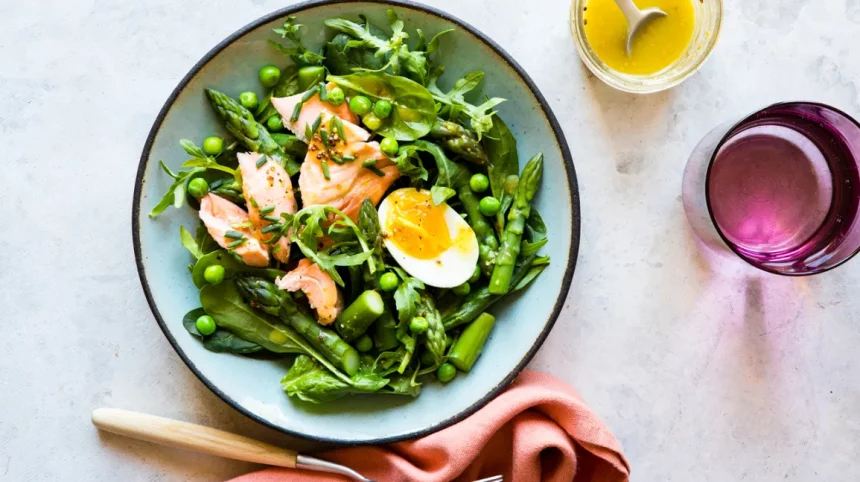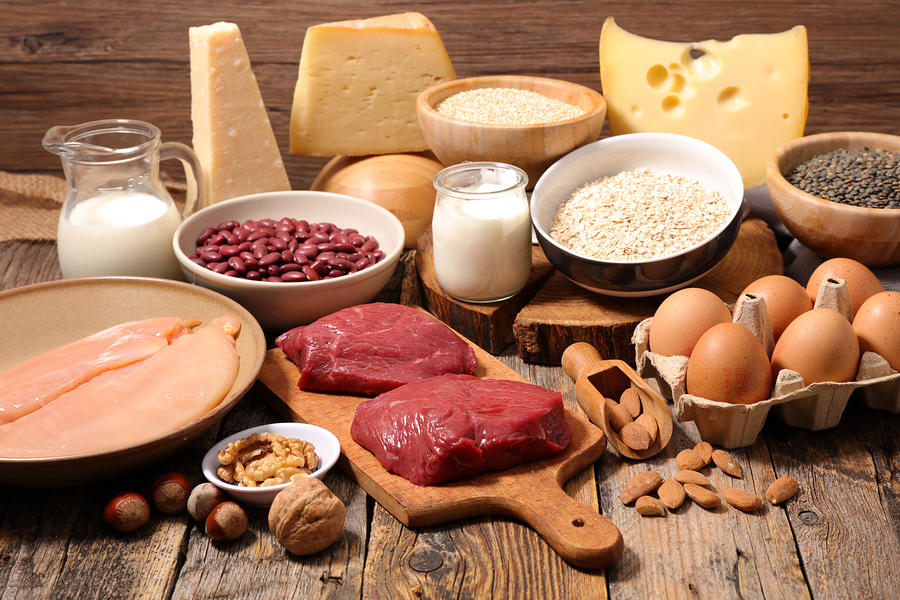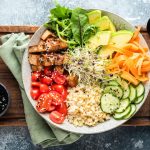Quality is as important as quantity. Everything you need to know to keep your body and mind healthy protein.
What are proteins?
Dietary protein provides energy and supports mood and brain function. It is an essential nutrient for the growth, maintenance and repair of all tissues, cells and organs. However, it is also present in many of the foods we eat every day. But it is often too common to mistake it as part of our diet.
When you eat protein, it is broken down into 20 amino acids that are essential for growth and energy. The amino acid tryptophan affects mood by producing serotonin. It can reduce symptoms of depression and anxiety and improve brain function
Many sources of animal protein are meat, poultry, fish, eggs and dairy products. Provides all the amino acids the body needs. Protein sources like whole grains, beans, vegetables, and legumes usually contain at least one essential amino acid, which doesn’t mean you have to eat animal products to get the right amount. Eat a variety of plant-based proteins every day to make sure your body gets all the essential amino acids it needs.
Health Benefits of Protein
Protein gives you energy to get up and move. Although too much protein can be harmful to people with kidney disease, diabetes, and some other conditions, the right amount of protein provides the following benefits.
- It makes the immune system more efficient and strengthens the heart and respiratory system to speed recovery after injury.
- It is important for the growth, development and maintenance of health of children in old age.
- It can help reduce the risk of diabetes and heart disease.
- It improves your mood and increases your resistance to stress. anxiety and depression.
- It helps you stay healthy by controlling your appetite. It keeps you full longer and you have more energy to exercise.
In addition to being important for health and energy. Protein is also important for your appearance. A high-protein diet helps maintain healthy skin, nails and hair and build muscle and maintaining a healthy weight when eating.
Although most people who follow a Western diet get enough protein each day, many of us don’t get the protein we need.
An excellent source of high quality protein
Most meat is high in protein and saturated fats. Fish such as salmon, trout, sardines, anchovies, sable (black cod), and salmon are also high in omega-3 fatty acids. Experts recommend eating seafood at least twice a week.
Skinning chicken and turkey cuts down on saturated fat. In the U.S., non-organic chicken may contain antibiotics and be fed food genetically modified with pesticides. So, choose organic and free whenever possible.
Dairy products such as skim milk, cheese, and yogurt contain a lot of healthy protein. Beware of sugar and low-fat yogurt and unsweetened milk. Also, avoid processed cheeses that often contain non-dairy ingredients.
Lentils are high in protein and fiber. Add to salads, soups and stews for a protein boost.
while it is a good source of dates and seed protein. Both nuts and seeds are high in fiber and “good” fats. Add to a salad or set aside for a snack.
Tofu and soy products. Non-GMO tofu and soy are good substitutes for red meat. High in protein and low in fat. Try Meatless Monday. Vegetable protein sources are cheaper than meat. So the wallet is as good as it gets.
Tips to increase your protein intake
Want to add quality protein to your diet? Try to replace processed carbohydrates with quality protein.
Limit the intake of processed carbohydrates from foods such as cakes, bread, pizza, cookies and chips and substitute meat, nuts, seeds, nuts, peas, poultry and low-fat dairy products.
Eat nuts and seeds instead of potato chips. With chicken breast and roast beef, replace the pastry with Greek yogurt or pizza slices.
Not a fan of seafood? Meatballs
If you’re not a fan of seafood but want to add it to your diet… there are ways to make fish tastier.
- Always buy fresh meat. Some say tilapia, cod and salmon have the least flavor.
- Add spicy sauce to mask the taste.
- Season the meat with Creole or Cajun seasonings.
- Add white fish such as mussels, cod or tilapia to the curry.
- Pair your grilled fish with fresh salsa or your favorite sauce.
- Combine canned salmon or tuna with low-fat mayonnaise and fried onions for a hearty sandwich.
To avoid problems due to increased consumption of protein
- Choose low-salt cereals and grains to reduce your daily sodium intake.
- When buying canned goods, choose low-sodium options
- Reducing protein in the diet can increase stool production. So drink plenty of water.
Protein supplements can also cause calcium deficiency, so make sure you get enough calcium (1,000-1,200 mg per day).

Protein powders, shakes and bars
When you eat the right amount of whole foods each day, you usually get all the nutrients you need. However, you can benefit from adding it to your diet without added protein.
- Older young people exercise more often.
- Adults who have converted to a vegetarian diet do not eat meat, poultry, fish, milk, or eggs.
- Older adults with anorexia have a hard time getting enough protein in their diet.
- Starting or increasing a regular exercise program Trying to build muscle Recovering from sports injuries or finding weaknesses when exercising or lifting weights.
Take a protein supplement
Protein supplements come in a variety of forms. Powder in premix shakes or bars that contain the powder mixed with milk or water. The most commonly used proteins are whey, casein and soy. Vegan and casein are milk proteins. Soy is a good choice for vegetarians and those with dairy allergies.
Safety Precautions Protein supplements may not be safe for adults with kidney disease or those who have recently had a colonoscopy. Some ingredients may interact with prescription medications. So always consult a doctor or pharmacist before use. Stay hydrated by drinking plenty of water and getting enough calcium in your diet.
Avoid special stress Most protein bars contain carbohydrates and sugar.











